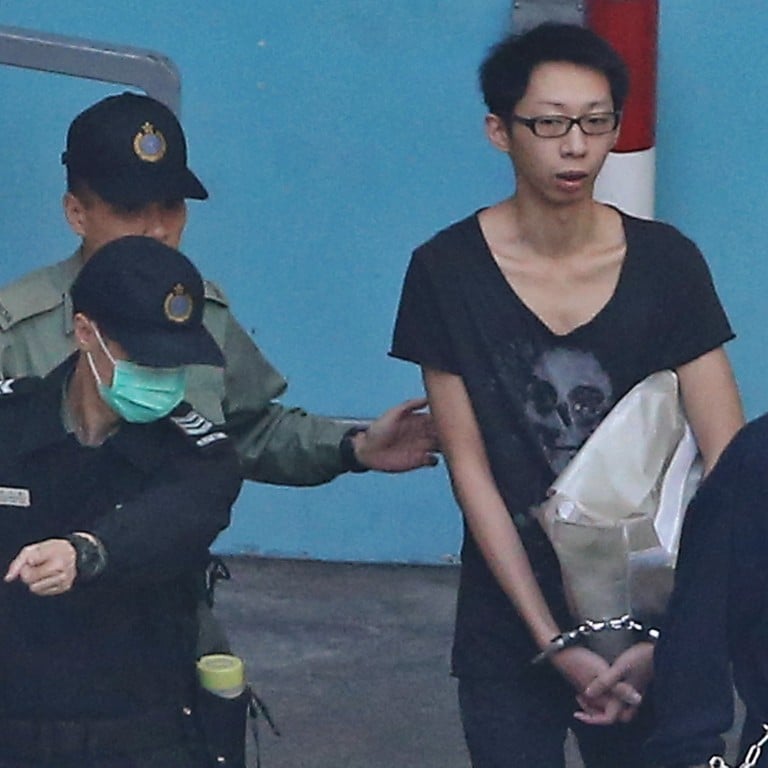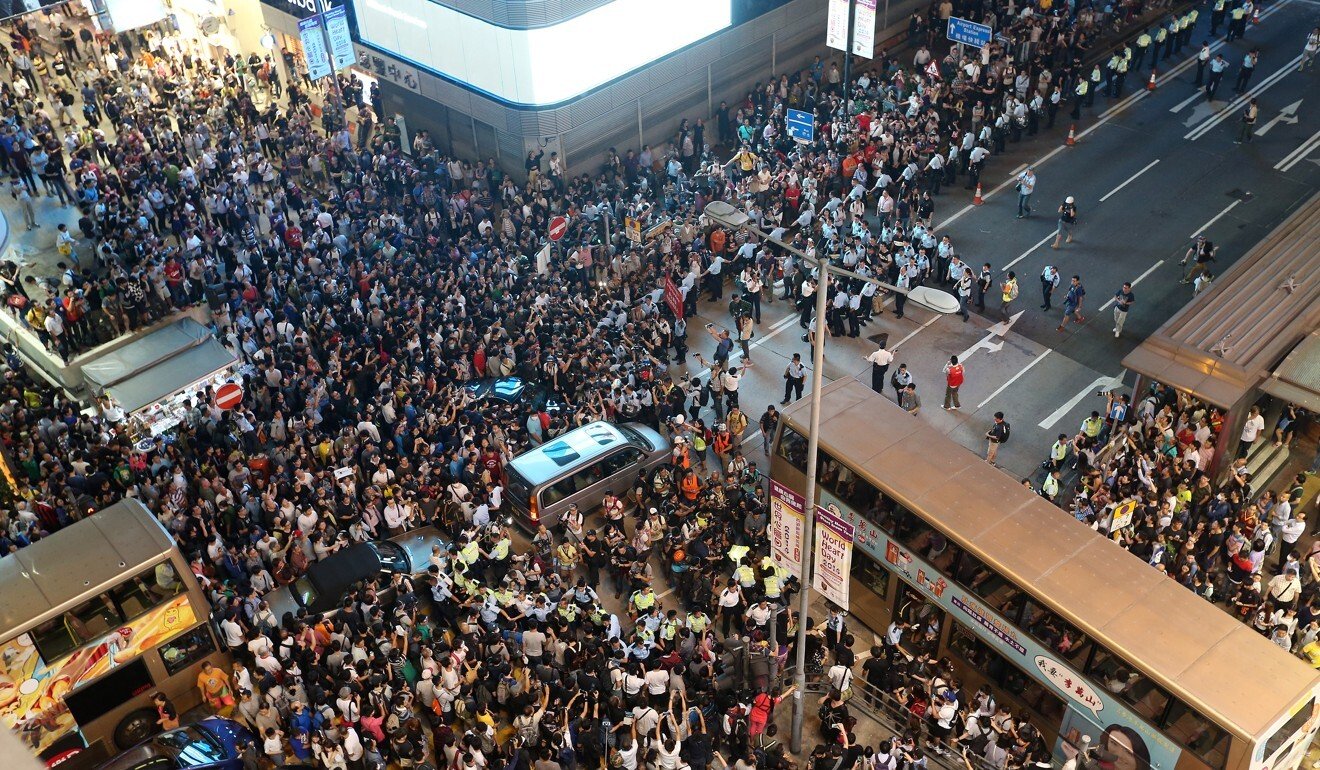
Hong Kong government seeks damages against activist over injuries suffered by police during Occupy protest
- Authorities seeking more than HK$170,000 in compensation for the injuries, which allegedly left one officer permanently affected
- The case stems from a 2014 operation in which police tried to clear Occupy protesters from Mong Kok
The District Court claim filed against Billy Chiu Hin-chung, 35, was calculated based on 148 days of sick leave granted to four senior constables and compensation for one of those officers’ permanent loss of an estimated 1.5 per cent of his earning capacity due to injuries.
The case stemmed from a police clearance operation in Mong Kok on October 17, 2014, when officers unsuccessfully tried to regain control of the busy shopping district and reopen major roads as protesters ignored warnings to leave the scene.

Chiu, founder of the protest group Hongkongers Come First, was prosecuted the following year for obstructing and resisting police during the clearance, as well as allegedly assaulting one of the four officers named in the present claim.
He was jailed for four weeks after being found guilty in May of 2015 on all charges except the assault.
The four-week jail stint included one week for breaching the conditions of the suspended sentence he received for his conviction over a political stunt in 2013 in which he and several others broke into the People’s Liberation Army barracks in Admiralty while waving a colonial flag and asking the PLA to “get out of Hong Kong”.
Government counsel Marianna Ho Wing-nam said Chiu had been asked to compensate the four officers but ignored demands to pay the requested HK$171,894.85.
The secretary for justice is now suing for the sum, plus interest and costs.
Petition urges Hong Kong universities to reverse dismissals tied to Occupy protests
Ho said they would rely on the convictions over the Occupy protests to establish that Chiu was the only one responsible for the injuries in question.
She also provided a brief account of the events in the claim filed on Monday, accusing Chiu of trying to cross a police cordon at the junction of Nathan Road and Shantung Street, as well as ignoring warnings to leave.
Chiu was said to have suddenly and forcefully attacked two officers’ shields, even after a third officer declared that he was under arrest for obstructing police.
Three other officers reportedly came forward to offer assistance, while a seventh officer issued further warnings for him to comply.
But Chiu allegedly ignored those warnings and continued to struggle, causing one of the officers – surnamed Kwok – to drop to the ground, with Chiu falling on top of him.
Five policemen jailed for beating Occupy protester lose final appeal bid
Chiu was then immediately handcuffed by the other officers, but was said to have continued to struggle, kicking Kwok multiple times, according to the filing.
Chiu was later escorted to a nearby building, where he allegedly kicked Kwok again.
A subsequent medical examination revealed that Kwok had injured his left knee, right shoulder and chest.
Two other officers were also found to have injured their left shoulders, while a fourth suffered injuries to his wrist and elbow.
Kwok was granted 136 days of sick leave – equivalent to HK$134,396.18 in pay – and experts concluded that he had permanently lost 1.5 per cent of his working capacity.
His colleagues were given sick leave for two to eight days.

